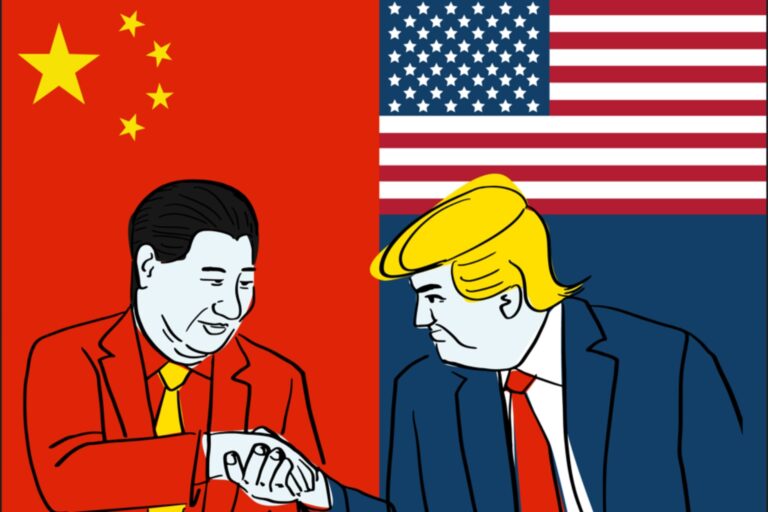With the new presidential administration in the United States, numerous articles have been published which suggest initiatives for the Biden administration, including from such Washington institutions as the Council on Foreign Relations,[1] the Center for Strategic and International Studies,[2] and Foreign Policy magazine.[3] Many innovative and sound policy ideas are found in these pages. But by examining Africa policy in the first place, all demonstrate a flaw that permeates US policymaking: Africa is not a region. It is time to stop thinking of it as one.
Beyond Africa, political regions rather than continents form the basic unit of analysis in policy discussions. The United States is not expected to have a “Europe policy” guiding relations from Spain to Belarus and everywhere in between. The notion of an “Asia policy” stretching from Lebanon to Japan is even more nonsensical; yet, the idea of “Africa policy” remains the norm. Beyond the division between the predominantly Arab countries of North Africa, which get lumped in with the Middle East; and sub-Saharan Africa, which is more of a catch-all term than a clearly defined geographic or political area; Africa is approached as if it has no distinctive political regions. This is a serious oversight reflecting outdated thinking, Africa has political regions that are becoming increasingly relevant.
Of course, pushback against the usage of “Africa” as a catch-all term in place of genuine, localized nuance is not new. In 2014, an app called “Africa Isn’t a Country” was created to track instances of media outlets referring only to “Africa” instead of using properly specific regional terms.[4] However, especially at the political level, the problem of overgeneralization is more urgent than ever due to the expanding roles and proliferation of regional blocs and organizations across Africa over the past decade.
Economic and security blocs have led this charge. In 2014, the G5 Sahel, comprised of Mali, Burkina Faso, Niger, Chad, and Mauritania, was founded in order to boost cooperation on transnational security issues, especially crime and terrorism. In the same neighborhood, the Economic Community of West Africa (ECOWAS), a grouping of 15 countries, has seen its regional role steadily expand, including in the security sphere. For example, in 2017, ECOWAS spearheaded an unprecedented military intervention in The Gambia, when then-president Yahya Jammeh lost an election and subsequently refused to leave power.[5]
Thousands of miles away in the Horn of Africa, the Intergovernmental Authority on Development (IGAD), which is headquartered in Djibouti and brings together Sudan, Ethiopia, Uganda, Kenya, Djibouti, South Sudan, Somalia, and Eritrea, has seen its role evolve, especially as a mediator in regional conflicts. Although IGAD ostensibly sponsored the negotiations in the 2000s, which paved the way for the independence of South Sudan, in reality the peace process was driven by the United States, the United Kingdom, and Norway (the so-called Troika).[6] Since 2015, though, IGAD has again served as a mediator, this time in South Sudan’s civil conflicts. Despite the obstacles faced in the talks, IGAD as an institution has provided an outlet for regional states to push for an African-led peace process rather than one dominated by external powers, boosting IGAD’s importance as a political player.[7]
Beyond politics, economic blocs are demonstrating their newfound influence. For example, the East African Community, a bloc of six states around the Great Lakes region of East Africa, which has been extant since 1967, launched its Common Market in 2010 after years of negotiations and preparations.[8] More broadly, the African Continental Free Trade Area (AfCFTA) launched in 2018 eventually hopes to be a continent-wide economic bloc, ultimately including more than 1.3 billion people in more than 50 countries. However, the AfCFTA is years away from being fully implemented, and in the short term, the agreement will build on rather than replace Africa’s various regional economic pacts.[9] The AfCFTA cannot feasibly be put into practice simultaneously across the entire continent, so for any individual country to reap benefits from the agreement, its trading partners, and especially its neighbors, must also have implemented it. In other words, implementation of the AfCFTA will need to proceed using preexisting regional economic blocs as starting points.[10]
Specific regional institutions aside, Africa is likely to see increasing regionalization because demographic and economic forces shaping the entire continent will result in differential national and regional outcomes. An excellent example is the so-called youth bulge, which has received extensive attention from scholars: most African countries have young and rapidly expanding populations. A youth bulge in a peaceful, relatively stable country with a rapidly growing economy (for example, Rwanda) will amplify economic growth and development, resulting in a so-called “demographic dividend.”[11] However, in a country facing major societal divisions, violence, and a faltering economy (for example, Mali), thousands of young people entering a workforce insufficient to accommodate them will exacerbate all the country’s other problems, from political violence to environmental degradation. However, both economic growth and security challenges, especially terrorism, insurgency, and organized crime, tend to be transnational, and as a result, regions, not just individual countries, will likely follow diverging trajectories. These dynamics are already playing out in Mali, Rwanda, and elsewhere across the continent and will only accelerate in the years to come.
How could understanding Africa in terms of its political regions improve US policymaking? First, thinking regionally allows for a middle ground between granular country-specific policies (for example, working with farmers in Central Mali to improve millet yields) and continent-wide policies so vague they are effectively meaningless (for example, engaging with Africa’s youth). Second, for the past decade or more, US policy towards Africa as a whole has rested on the twin pillars of security and development. Working on the regional level, especially through greater engagement with and support for African regional institutions, allows for more effective action on both fronts. Beyond government, American investors will need to understand regional, not just national, dynamics to be able to take advantage of Africa’s growing economies as they diverge along regional lines.
Over the longer term, the institutional structure of the United States’ foreign-facing government institutions should be redesigned to better reflect the diversity of countries, regions, and therefore US interests at stake in Africa. For example, the US Department of State currently divides Africa between the North African countries, which fall under the Assistant Secretary for Near Eastern Affairs, and the rest, which are under the Assistant Secretary for African Affairs. (Asia, by contrast, is split between no fewer than four divisions.) In the future, African Affairs could be divided into two divisions: (1) West and Central African Affairs, encompassing West Africa through the mainly Francophone countries of Central Africa, and (2) East and South African Affairs, encompassing the Horn of Africa, the countries of the East African Community, and all the countries south of the Democratic Republic of the Congo. Such a redesign of American government and research institutions would demonstrate the seriousness of the United States’ engagement with Africa, allow for better information flow, and ultimately facilitate better policy.
By the year 2035, as leaders of African countries are keen to point out, a quarter of the world’s working-age population will live in Africa.[12] The United States can no longer afford to view Africa through a 20th century lens. In the future, good Africa policy will require acknowledging that, just like every other continent, Africa does not exist as a unitary or monolithic entity at the political, economic, social, or any other level. Africa is not a region—it has its own political regions—and understanding them will be key to mutually beneficial engagement between the United States and Africa’s nations.
[1] John Campbell, “The Biden Administration’s Approach to Africa,” Council on Foreign Relations, November 5, 2020, https://www.cfr.org/blog/biden-administrations-approach-africa.
[2] Judd Devermont, “A New U.S. Policy Framework for the African Century,” Center for Strategic and International Studies, August 7, 2020, https://www.csis.org/analysis/new-us-policy-framework-african-century.
[3] Aubrey Hruby, “It’s Time for an Africa Policy Upgrade,” Foreign Policy, November 30, 2020, https://foreignpolicy.com/2020/11/30/united-states-africa-policy-biden/.
[4] Nicolas Kayser-Bril, “Africa Is Not a Country,” The Guardian, January 24, 2014, https://www.theguardian.com/world/2014/jan/24/africa-clinton.
[5] Paul D. Williams, “A New African Model of Coercion? Assessing the ECOWAS Mission in The Gambia,” IPI Global Observatory, March 16, 2017, https://theglobalobservatory.org/2017/03/ecowas-gambia-barrow-jammeh-african-union/.
[6] Alex de Waal, The Real Politics of the Horn of Africa: Money, War and the Business of Power (Polity Press, 2015), 84.
[7] Cosmas, Khamis. “South Sudan Peace Talks: The Role of IGAD.” PeaceInsight, March 24, 2015, https://www.peaceinsight.org/en/articles/south-sudan-peace-talks-role-igad.
[8] Kennedy Gastorn and Wanyama Masinde, “The EAC Common Market,” in Emmanuel Ugirashebuja et al, editors, East African Community Law: Institutional, Substantive and Comparative EU Aspects (Brill, 2017), 285.
[9] Maryla Maliszewska et al., “The African Continental Free Trade Area: Economic and Distributional Effects,” The World Bank, 2020, 16.
[10] Andrew Mold, “The Countdown to Implementing the African Continental Free Trade Area in East Africa,” The Brookings Institution, October 20, 2020, https://www.brookings.edu/blog/africa-in-focus/2020/10/20/the-countdown-to-implementing-the-african-continental-free-trade-area-in-east-africa/.
[11] Paulo Drummond, Vimal Thakoor, and Shu Yu, “Africa Rising: Harnessing the Demographic Dividend,” International Monetary Fund, August 2014, accessed via https://www.imf.org/external/pubs/ft/wp/2014/wp14143.pdf.
[12] See, for example, see Ghanaian President Nana Akufo-Addo’s remarks at the St. Andrews Africa Summit, February 22, 2020. A video of President Akufo-Addo’s speech can be found at https://www.youtube.com/watch?v=VrTj2hh7-Ck.




